ANEW Students
Meet our Students
Our Students share their passion for serving rural and underserved communities, and their reasons for working with ANEW
Andrea Craig
Clinical Site: Mariposa Community Health Center
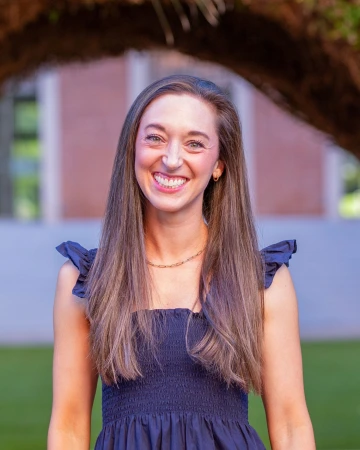
Alexis Lopez
Clinical Site: United Community Health Center ( UCHC)
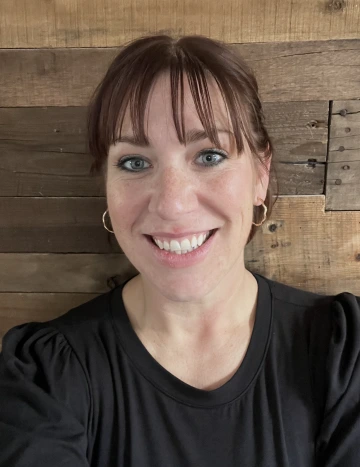
I am a proud Tucson, Arizona native. At a young age, I was exposed to the healthcare world due to my mother having a disability. I learned so much about our healthcare system, how to care for others, and most importantly, how to be a part of her support system. Additionally, I got to witness her advocating for her care, her independence, and her quality of life and possibilities despite being quadriplegic. She encouraged me to want to help others do the same.
I first became a firefighter/paramedic, and during this time, I received my bachelor's in health science from Northern Arizona University. I worked across Tucson while in the fire department and became familiar with the underserved communities. I wanted to be more involved in patient care than in the emergency setting. I received my Master of Science in nursing from the University of Arizona’s MEPN program. I have worked in a neurological intensive care unit and a children’s primary care office, specializing in comprehensive care for special needs children and their families. From there I discovered my passion for mental health; I have worked in inpatient mental health and outpatient psychiatric procedural therapy, providing electrical convulsive treatment.
I have been part of many incredible interprofessional teams with different backgrounds and levels of expertise. Through my experience, I have learned the difficulties of our healthcare system in rural areas and community health, including many health disparities. I hope to bring my life, work, and educational experiences to provide and promote mental health awareness, advocacy, and care for those within southern Arizona's rural and underserved communities.
Joy Achang
Clinical Site: El Rio Health
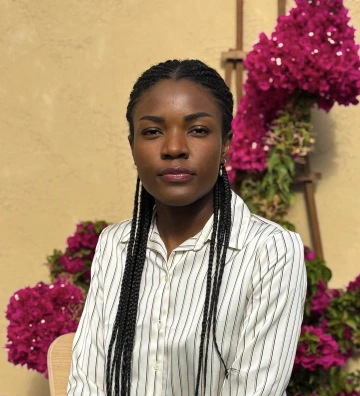
My desire to work with rural communities and individuals with limited access to healthcare stems from my personal and professional experiences. I have been a bedside nurse for over 3 years and have worked with patients from different backgrounds and cultures. I realized in my time as a bedside nurse that most patients who are from areas with limited healthcare access come to the hospital with preventable diseases due to limited access to preventive care or have a poor prognosis due to delays in getting help. Access to mental healthcare is limited for many, but more so for people in rural areas. I want to gain more experience working with this community during my training; that way, I can better serve this community as a Psychiatric Mental Health Nurse Practitioner. I hope to be one of the providers that makes healthcare more accessible and affordable to these communities and encourage others to do the same.
I lost my mom as a teenager from a heart attack because of limited access to healthcare and delayed intervention. I understand what it feels like to know your loved one would have been saved had they gotten the help they needed in a timely fashion. I hope to change that for many people, starting with one person at a time. I look forward to working with the rural community during my clinical training to learn from them and understand their challenges. I also look forward to seeing how providers in this community overcome or help their patients overcome some of these challenges.
Teri March
Clinical Site: Desert Senita
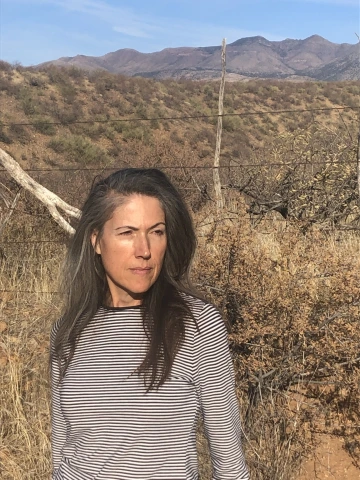
I grew up in the desert, in the outskirts of a small mining town. Not much going on there . Not much there period. We didn’t know any different, so we played outside, roamed in the surrounding hills and mountains, rode our bikes and grew up. We were happy. One day I remember the sky being filled with smoke, and it was hard to breathe. That year, all the leaves on the trees died. There were no flowers, no fruits. Such is a mining town. The one medical professional who took care of me all my life, who took care of everyone and never turned a person away, dropped dead of a heart attack. We didn’t understand. In a poor mining town, we just accept, because who is going to hear us? Who is going to see us? Who is going to care? Having no medical insurance, I was a mother to be on public assistance. I was present at the event, but the night was long and the staff was tired. They didn’t see me. The night wore on, most assuredly nobody more tired than myself. No one heard me. That baby boy was early, he came anyway. I walked away confused. How does one become visible? Sometime later, a few kids down the line and proud because I had private insurance, I took that new sweet baby girl on her 7th day of life in to meet her new doctor. I did not want what he wanted for my child. We disagreed. I was told to bundle her back up, and grab her chart on the way out the door. So that’s what I did. I gathered all my children, and walked away. We never went back. So, I’ve had to learn some things, lots of things in the years that followed. Years spent taking care of those who have been marginalized or invisible for whatever reason. That’s what I’ve been doing, and I hope to keep doing it, only with a few more tools in my box. Now I find myself back in that same small mining town that is my birthplace. The diesel smoke from the trains south of the house an assault to the senses. The helicopter landing to the north, busy with those same mountains I roamed as a kid. The arsenic remediation plant down the street in an attempt to clean up water long ago spoiled. Things really haven’t changed much, such is life in a mining town. Many don’t live past 60 years of age. Heart attacks take them quickly, or cancers slowly. Too many neurologically impaired; they can’t walk or remember their name, and the youngsters are volatile and can’t read. Hard to know what to do sometimes, so you just keep going. Keep going even if things don’t make sense. Keep going even if unsustainable, and change is too long in the coming. We must do our best today. We must be open to new information. We must see each other; we must hear each other. And most importantly, we must remember to be kind.
Chandler Collins
Clinical Site: Chiricahua Community Health Center

My passion for caring for rural communities stems from my upbringing in Sylacauga, Alabama, where I experienced firsthand the challenges of accessing healthcare in a rural setting. Growing up surrounded by vast landscapes and farms, I often witnessed the difficulties faced by residents in obtaining timely medical assistance. This interest deepened during my undergraduate studies at Auburn University, where I completed numerous clinical rotations at rural health clinics and hospitals. Now, as I have transitioned to Phoenix, Arizona, and started working at Mayo Clinic, I have become acutely aware of the stark differences in healthcare access between rural and urban areas. This experience has reinforced my commitment to addressing the healthcare disparities that exist in rural communities.
My interest in cardiology is driven by a desire to bring cardiac preventative care to individuals in rural areas, helping to combat the deadly diseases that many Americans face. I believe that by focusing on prevention and education, we can significantly reduce the incidence of cardiovascular diseases in these underserved populations. The integration of preventative care strategies can empower individuals to take charge of their heart health, ultimately leading to improved outcomes and quality of life.
Through my one-year clinical immersion in southern Arizona, I hope to gain invaluable experience in providing care to rural populations. My objective is to develop the skills and competencies necessary to make a meaningful impact on the health of these communities. I aspire to enhance my understanding of the unique challenges faced by rural patients and to implement effective strategies for disease prevention and management. Ultimately, I aim to contribute to the improvement of health outcomes for individuals in these areas, ensuring that they receive the quality care they deserve.
Shannon Crouch
Clinical Site: El Rio
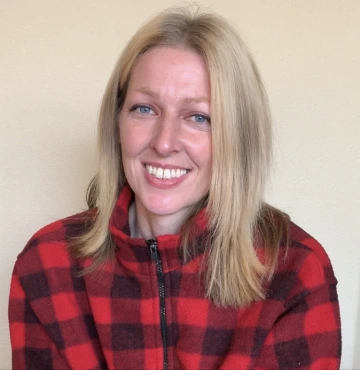
My interest for rural health has been instilled in me throughout my life, as I grew up and lived in a small rural logging town for over 35 years, until 2020. I've experienced rural living, and truly know the challenges experienced with having limited medical resources available. I grew up adjacent to a Native American reservation and the majority of my classmates and close friends were Native American. The tribal community in my area pushed to help their native people with resources from the local casino, but health disparities existed on all levels, for natives and non-natives. It was almost an hour drive to the closest hospital, along one of the most dangerous small highways in America due to prevalent car wrecks and poor driving weather conditions. I witnessed lifelong psychological and physical struggles associated with rural living, and I want to help those struggling with those specific challenges. I'm a rural country girl in my heart and soul, and personally don't feel at peace when I'm not out in the country. I will eventually settle out in a rural area in Arizona soon enough, and I plan on utilizing all experience gained through the ANEW scholarship to help those in my community, so that I can provide exceptional care. I am in the PMHNP program, and I plan on utilizing my degree and certification to its fullest extent to help as many people as I can live a healthy, fulfilled, and hope-filled life.
Gabrielle Diaz
Clinical Site: Desert Senita
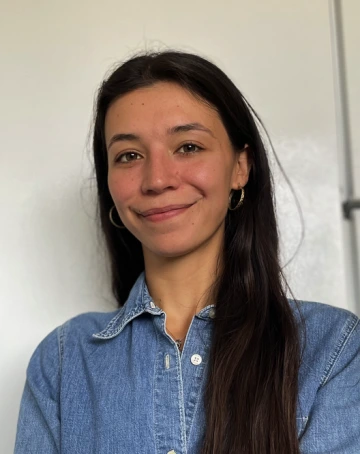
I have been a registered nurse for nearly half of a decade and currently work in an emergency department in a medically underserved area. My passion for rural and underserved healthcare stems from my professional experiences and my volunteer work with Flying Samaritans. This work has deepened my understanding of the unique barriers faced by border, refugee, and rural populations, including challenges in accessing equitable and compassionate care.
As an ANEW scholar at Desert Senita Community Health Center, I hope to further develop my skills in providing culturally sensitive, evidence-based care tailored to the unique needs of these communities.
I aim to learn best practices in rural and border health and integrate them into my future practice as a nurse practitioner. I look forward to collaborating with the Desert Senita team and learning from the resilience of the communities we serve.
Jacob Fijal
Clinical Site: El Rio
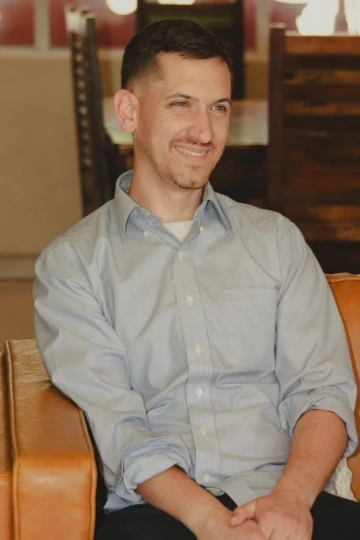
I am incredibly grateful for the opportunity to have spent my entire life in the vibrant and diverse Tucson community. Throughout this time, I have built a rewarding career as a nurse, focusing primarily on providing essential care to many underserved populations in emergency medicine. My journey has solidified my long-term career aspirations, which revolve around the commitment to delivering interdisciplinary care and dismantling the oppressive structures that create inequity within our healthcare system and impact global health communities, particularly in rural and underserved areas.
After completing my service with the Air Force, my goal is to collaborate with organizations and agencies devoted to delivering healthcare services to indigenous communities, often found outside the confines of established industrial infrastructure and metropolitan regions. My aspirations do not end there, for I desire to further my education and practical experience in rural medicine globally. Through pursuing a post-doctorate journey, I intend to immerse myself in different models of rural healthcare through interprofessional collaborations, utilizing the skills and insights gained during my time in the Air Force. I am particularly keen on exploring how various approaches to rural medicine can be integrated into comprehensive healthcare models, such as those exemplified by El Rio and Marana Health Care. It fascinates me to discover and learn about the efficacy of incorporating care for rural and underserved populations within the framework of multi-health centers, which can significantly enhance access to high-quality medical services for vulnerable communities.
Flor Franco
Clinical Site: Desert Senita
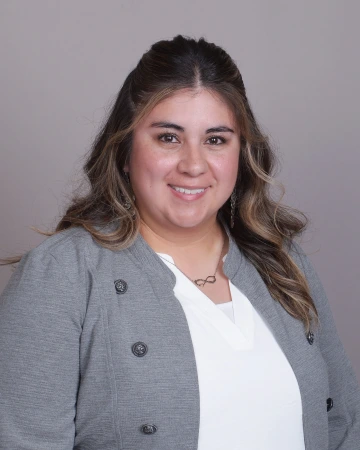
My past experiences of living in a rural and underserved community as a minority motivated me to pursue a career in healthcare. My desire to further my education and work with rural and underserved populations grew from my interactions with exceptional providers who advocated for their patients, delivered high-quality care, and worked to ensure that care remained accessible to everyone. This drive became even stronger when I observed how often members of my community had to travel long distances to access healthcare, incurring unnecessary expenses and facing increased barriers. Rural towns like mine make efforts to attract healthcare providers, but retaining them is a significant challenge due to the rural location. As a result, these towns often rely on locum tenens providers, who do an excellent job delivering care but are only temporary. This situation makes it difficult to build trusting, long-term provider-patient relationships, leading to issues with consistency and communication.
My motivation to work with rural and underserved communities is also influenced by my family’s experience of moving to the United States. I was born in La Piedad, Michoacán, Mexico, and immigrated to the U.S. with my family when I was five years old. We settled in a rural town in northeastern Nevada. As a child, I remember the challenges my family faced when we first arrived, including language barriers and difficulties accessing healthcare. As I learned English, I became the translator and advocate for my parents. I felt it was my responsibility to support them, and I often thought, “If not me, then who?” At that time, it seemed customary to accept the limited healthcare access available to us, and the feeling of being underserved was prevalent due to our minority status and rural living. Now, as an adult and a healthcare provider, I recognize the significant gaps that still exist in healthcare delivery. While healthcare has advanced remarkably, many issues remain—particularly in providing equitable and inclusive care, especially in rural areas.
Growing up as a minority in a rural and underserved community shaped my core beliefs in family, community, compassion, honesty, and loyalty. As a future family nurse practitioner, I am eager to serve rural and underserved populations. I look forward to caring for Spanish-speaking patients, speaking to them in their native language, and empowering them to actively engage in their healthcare journey.
Deni Gardner
Clinical Site: El Rio
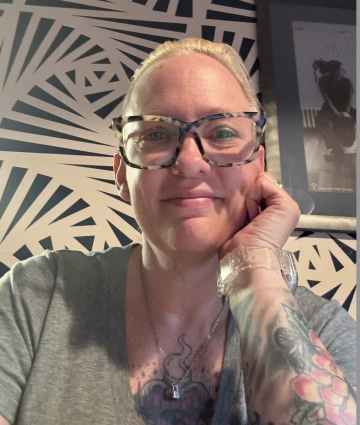
Having spent the last seven years of my nursing career in trauma critical care, I have been exposed to underserved patient populations at every turn. From a lack of mental health resources to decreased access to overall healthcare for the unhoused, the precarious situations this population find themselves in can lead to unpredictable and unsafe outcomes. Having experienced this disparity only in the acute care setting, I look forward to expanding my reach into the outpatient world of rural health and truly feeling like I am making a difference in my field.
Holly Pizzini
Clinical Site: United Community Health Center (UCHC)
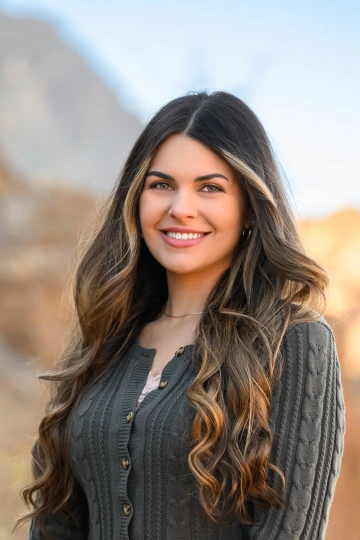
My name is Holly Pizzini and I am a registered nurse from metro Detroit, Michigan, with five years of experience in critical care, currently working in a cardiovascular intensive care unit. I obtained my Associate degree from Henry Ford College School of Nursing in 2019 and my Bachelor of Science in Nursing from the University of Michigan in 2021. I am currently in my third year of doctoral studies at the University of Arizona to become a family nurse practitioner, aiming to serve the community as a primary care provider.
I moved to Tucson, Arizona in 2021 where I had my first patient encounters with those residing in surrounding rural communities. Often, these patients must travel to Tucson for a higher level of care. I learned of their unique challenges when seeking healthcare, including means of transportation and lack of health resources in their community. This experience and observation of individuals from underserved communities during their inpatient hospital stays has motivated me to pursue a career in rural healthcare to help address the health disparities that contribute to prolonged hospitalizations.
I plan to support clinical excellence in rural healthcare by always upholding the highest standards of practice, striving for positive patient outcomes, and enhancing my cultural competency. A specific goal of mine is to increase access to preventative healthcare to promote general health and well-being. Overall, I am excited and committed to creating a positive change in the rural healthcare community through evidence-based practice and learning the unique needs of the patient population I will serve as a nurse practitioner. I am grateful for and look forward to this wonderful learning opportunity!
Siobhan Honer
Clinical Site: Marana Healthcare (MHC)
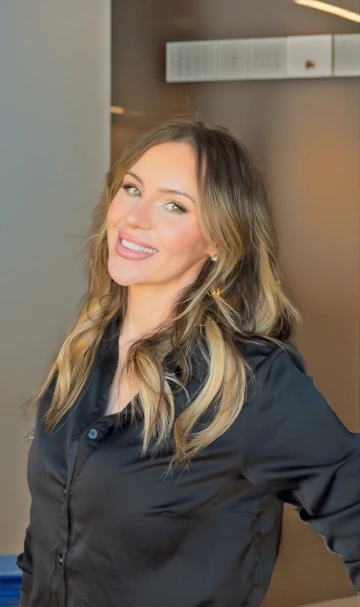
My healthcare journey began with a Bachelor’s degree in physiology, laying a foundational passion for understanding the human body and the complexities of its experiences. I completed my Master’s Entry to the Profession of Nursing at the University of Arizona to pursue a career that combined this passion and my desire to develop and apply expertise that unites compassion and evidence. After almost a decade of nursing, I continue to be grateful and humbled by my privileges with patients and other healthcare professionals.
Throughout my personal and professional experiences, I have cultivated a deep connection and commitment to serving the underserved, especially with consideration to rural populations. My work has allowed me to engage with diverse communities, and I am particularly interested in border health and rural veteran care. These opportunities have reinforced my belief in equitable access to healthcare for all and strengthened my drive to be a part of efforts to accomplish this goal. In addition to focusing on physical health while working in acute care, I am deeply drawn to mental health care, leading to my current PMHNP DNP pursuit. It is my hope that as a PMHNP, I will help bridge gaps and improve care for rural individuals facing mental health challenges.
Community has always held substantial value in my life, and I am grateful to have current roots in the rural community of Marana, Arizona, where I live with my family. I am honored to have this chance to serve and contribute to my community as an ANEW Scholar in Marana. I am dedicated to making a positive impact through my work, and will carry this commitment in my future roles.
Asma Isack
Clinical Site: Momdoc
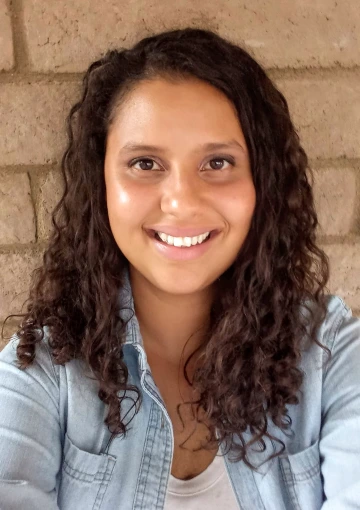
My interest in Project IMPACT stems from pivotal life experiences and a strong desire to protect and elevate at risk people through service, outreach and awareness. I spent parts of my childhood in rural Texas. We were poor and uninsured, relying on county health initiatives like vaccine clinics, and hearing, vision, and scoliosis screenings. The first birth I attended was my little sister’s delivery, at home in our bathroom. My mother chose this setting because it was affordable, did not require her to go away and find childcare, and the midwives respected her agency and autonomy to give birth how she wanted. My youngest brother's non-fatal drowning just months earlier shadowed her birth in tragedy. Overnight my family and I learned the heartache and hardship of providing total care for our severely brain injured boy. He shapes my work as a labor and delivery nurse when I support families mourning lost pregnancies and their children's unlived lives. I serve on the Mayor of Phoenix's Commission for Disability Issues to honor him and raise awareness about key problems affecting this vulnerable community. My early life greatly impacted my pursuit of justice and equitable care as do many adult experiences.
Before becoming a nurse my interactions with the healthcare system were difficult. I spent years uninsured because my partner made too much to qualify for state insurance but too little to afford it privately. I did not get prenatal care until late in my second trimester because I was unaware that pregnancy made me eligible for public aid. To add to the stress of pregnancy I was struggling with substance use disorder (SUD), terrified about the health of my unborn baby but equally afraid of asking my healthcare providers for help because of the risk of being separated from my children. Long term recovery has given me a wonderful life; I've restored my family, became a nurse, and recently had another baby, this time free of fear, guilt, and shame. Pursuing midwifery is a life dream of mine and it is sweeter now knowing that I get to serve pregnant women battling SUD on their own path toward recovery. The maternal health crisis is inextricably linked to mental health and SUD with rural communities facing disproportionate rates of morbidity and mortality. As a Certified Nurse-Midwife serving in rural Arizona, I get to be a part of the solution to this paramount public health issue.
This opportunity to participate in community-driven education directly aligns with my goals of service, outreach, and awareness of problems facing rural and vulnerable populations. Completing this intensive clinical immersion will teach me safe, quality obstetrics skills, while integrating me into the community I want to serve. Combining education and service will help me have a deeper connection to the people and a greater understanding of their unique healthcare needs. I look forward to the growth, knowledge, and partnerships I will gain as an ANEW scholar.
Jennifer McFee
Clinical Site: Chiricahua Community Health Center (CCHCI)
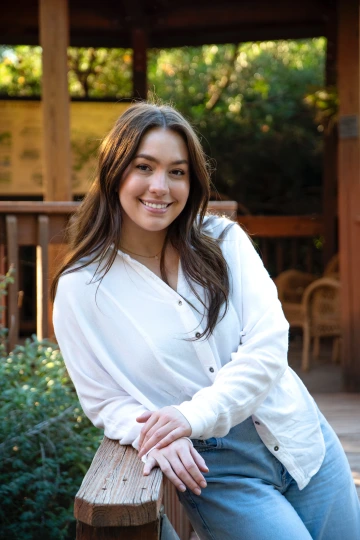
I am a University of Arizona alumni and second-year DNP student specializing in family medicine and rural healthcare. My interest in serving underprivileged and rural communities stems from my volunteer work as an undergraduate nursing student, where I worked with an interprofessional healthcare team providing free medical and nursing care to patients experiencing homelessness within the Phoenix and Maricopa areas. While my nursing experience is mainly in cardiology and cardiothoracic surgery, I am passionate about providing preventative healthcare as a means of optimizing health outcomes and encouraging sustainable health and wellness within patient populations.
My goal for the ANEW educational experience is to gain a deeper understanding and knowledge base on caring for rural and underserved populations, so that as Doctorally-prepared provider I may help address gaps in care, tackle health disparities, and advocate for equitable access to healthcare. I am looking forward to building and fostering relationships in these rural communities and feel grateful for such an incredible opportunity!
Reanna Draper
Clinical Site: Tsehootsooi Medical Center ( Fort Défiance)
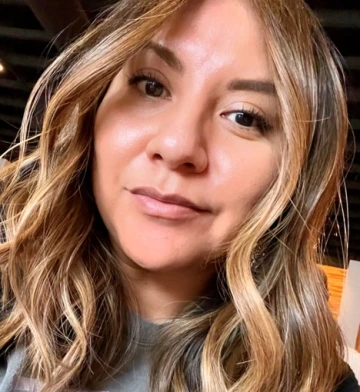
Ya’at’eeh (Hello), my name is Reanna Draper, and I will be completing the Family Nurse Practitioner program. I am a part of the Navajo Tribe, and my clans are Kinlichii’nii (Red House clan), born for Naanaasht’ezhi Tachii’nii (Red Running into the Water clan). I grew up in the northern part of Arizona, in the Navajo Nation. I was privileged to have grown up with my grandmother and extended family, all knowledgeable in our traditional Navajo culture and language. Growing up in the Navajo Nation and utilizing healthcare services available to us, many of our healthcare providers were not from our area, nor did they speak the Navajo language or understand Navajo culture. This made it difficult for people like my grandmother, who doesn’t speak English, to access or seek out healthcare properly. Because of this, I chose to pursue a career in the healthcare field and, more importantly, serve in rural healthcare facilities within Indigenous communities.
I have worked with our Indigenous communities in inpatient and outpatient roles as a nurse. My most recent being as a case manager, a role which has taught me how difficult it can be to obtain services like home health after someone is discharged from a large city hospital back to a rural area, or the challenges that arise when setting up home medical equipment for someone who does not have access to electricity or running water and lives in a highly rural area. I educate our tribal members on navigating the large city hospital systems, rural healthcare, and the tribal system in place. In this role, it is challenging, but it is also the most rewarding. In the future, I plan to use my knowledge to help bridge gaps and make access to quality healthcare more attainable within our rural communities.
Taylor Rock
Clinical Site: Marana Health Center (MHC)
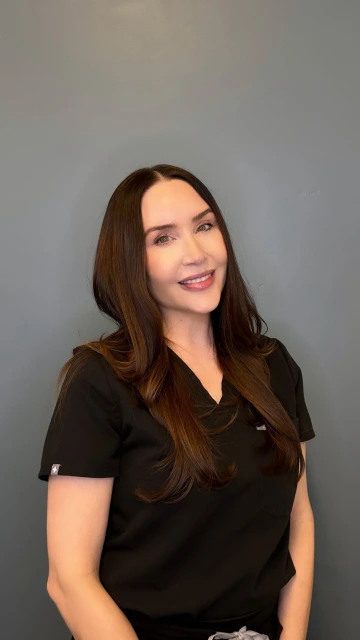
I am honored to receive the Advanced Nursing Education Workforce (ANEW) Scholarship during my clinical year as a Doctor of Nursing Practice - Family Nurse Practitioner (DNP-FNP) student. A graduate of the University of Arizona’s Master’s Entry to Professional Nursing (MEPN) program, I bring over six years of diverse nursing experience, including medical-surgical, long-term care, rehabilitation, state-run contracts supporting immigrant populations seeking asylum, and dermatology.
As an individual whose family grew up in a rural and underserved community, my dedication to improving healthcare in these communities is deeply personal and professionally driven. Witnessing rural communities' disparities and challenges ignited a passion to be a catalyst for change, ensuring equitable access to quality healthcare. This upbringing instilled in me a profound empathy, resilience, and understanding of the unique needs of underserved populations, which I carry into every patient interaction.
During this immersive clinical experience, my primary goal is to provide comprehensive care, health education, and evidence-based treatments that empower individuals to take control of their health. I strive to build trust through culturally sensitive care, creating personalized healthcare plans that honor cultural values and foster collaboration. Additionally, I aim to advocate for sustainable healthcare improvements by partnering with local organizations, enhancing healthcare infrastructure, and promoting long-term community health initiatives.
This scholarship represents a profound opportunity to serve rural populations and deepen my commitment to bridging healthcare gaps. I am grateful for this honor and the chance to collaborate with healthcare professionals, community leaders, and individuals to create meaningful change. My journey is not just a career path; it is a mission to uplift underserved communities and contribute to a more equitable healthcare system.
Auslu Suah
Clinical Site: Momdoc
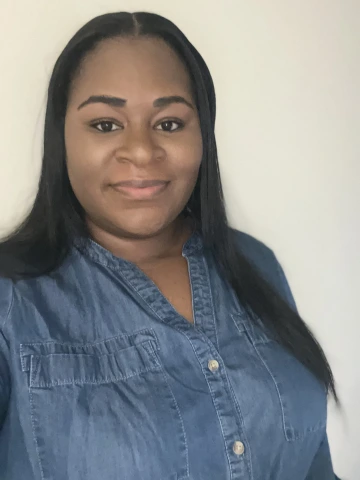
My name is Auslu Suah, and I am enrolled in the Midwifery program here at the University of Arizona. In my spare time, I enjoy being outdoors and spending time with my family. I am dedicated to delivering high-quality care to all individuals, regardless of their background or circumstances. My passion lies in providing inclusive and empathetic care, learning from the diverse cultures and experiences of my patients, and meeting them where they are to address their unique healthcare needs. The ANEW program will be instrumental in my journey, creating pathways that enable me to serve underserved areas effectively. Through ANEW, I will gain invaluable resources and support, empowering me to make a meaningful difference in communities that often lack adequate healthcare services. By fostering a deeper understanding of cultural competence and promoting a holistic approach to patient care, ANEW will help me ensure that every person I care for receives the compassionate and personalized attention they deserve.
Karina Vidal
Clinical Site: Chiricahua Community Health Center (CCHCI)
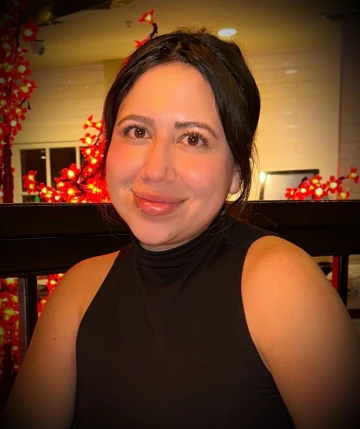
As a University of Arizona alumni, I am excited to continue my journey as a Doctor of Nursing Practice (DNP) Family Nurse Practitioner (FNP) student. With nearly ten years of nursing experience in the Neuro ICU and Cardiovascular Operating Room (CVOR), I have had the privilege of caring for patients during some of the most critical moments of their lives. These experiences have shaped my passion for providing compassionate, patient-centered care.
Born and raised in Tucson, I am a first-generation college graduate dedicated to serving my community and Arizona’s diverse populations. I believe the best care happens when we meet patients where they are—not only physically but emotionally and culturally as well. My goal is to bring quality healthcare to rural and underserved areas by understanding each patient’s unique needs and providing culturally sensitive, holistic care.
I am committed to learning from mentors, collaborating with care teams, and staying current on best practices. I look forward to using my skills and training to make a meaningful impact and ensure every patient feels supported, valued, and cared for.
Ryan Ziemba
Clinical Site: Desert Senita
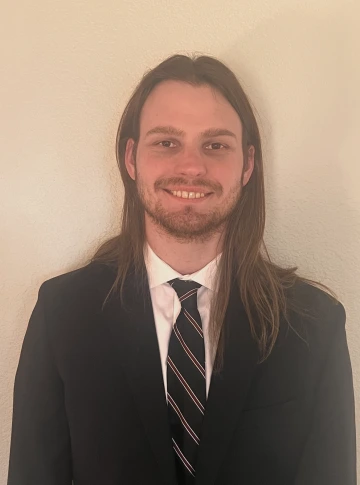
I want to serve rural communities with limited access to healthcare services and providers while providing high-quality patient care. My desire came from my experience working as a neuro-registered nurse at a stroke center. I would take care of many patients from rural areas who had to be transferred to the hospital where I worked for healthcare services not provided in their local areas. Many of these patients had health conditions that could be managed in an outpatient setting that could have prevented their life-altering complications. However, many of these individuals could not manage their health due to a lack of healthcare services, access, or long waitlist times. I want to expand healthcare services and coverage in rural communities so that people living in these communities can manage and treat their healthcare needs so that life-changing complications do not develop. My goals for my clinical immersive year are to understand the needs of the rural communities I will be in and help identify solutions and resources that can help benefit healthcare services and access. My second goal is to learn the skills necessary to serve these communities as a Family Nurse Practitioner (FNP). My third goal is to spread awareness of the need for healthcare access and services in these communities. I was unaware of the many barriers those living in rural areas face until I became a registered nurse. I want to expand and promote compassionate and quality healthcare services to rural communities.

